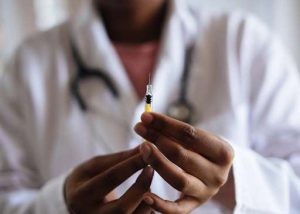 Does it work? Is it entirely safe? The coronavirus vaccine is becoming a reality in many parts of the world, and multiple rumors accompany it.
Does it work? Is it entirely safe? The coronavirus vaccine is becoming a reality in many parts of the world, and multiple rumors accompany it.
You may be wondering about the truth behind the concerns you’re hearing. Here are four myths about the COVID-19 vaccine, followed by the facts you need to know.
Myth #1: We Don’t Know If It’ll Work
Some people worry because scientists developed the COVID-19 vaccine quicker than many previous injectables. However, the high prevalence of the disease allowed for extensive testing in a short time frame. Manufacturers put their technology through rigorous clinical trials, and it proved effective for tens of thousands of people.
The new coronavirus shot contains messenger RNA (mRNA), a strategy researchers have studied for over 30 years. While it’s a new technology for a public vaccine, long-term studies show its effectiveness.
Myth #2: The New Vaccine Isn’t Safe
Are you concerned about the possible side effects of the COVID-19 vaccine? In general, it causes only mild discomfort, such as flu-like symptoms. You can’t get the virus from the injection, as it doesn’t contain live culture.
U.S. manufacturers have secured the necessary help in getting their coronavirus vaccine safely made. Thus far, the U.S. Food and Drug Administration (FDA) has approved the emergency use of two products from different companies.
If you’ve had an immediate reaction to any injectable in the past, check with your doctor to see whether the COVID-19 vaccine is safe for you. People who are allergic to the ingredient polyethylene glycol (PEG) or its cousin polysorbate shouldn’t get the shot.
The CDC has safeguards in place in case of allergic reactions. They include the following:
- Health professionals should monitor all who get the vaccine, keeping them on-site for 15 minutes. This time extends to half an hour for people who’ve had an allergic reaction in the past.
- Vaccination sites must-have equipment and medications on hand in case of an allergic reaction. These include stethoscopes, blood pressure cuffs, antihistamines, and epinephrine.
- A new tool called v-safe monitors any side effects people may have after taking the vaccine. This health checker allows the reporting of symptoms through smartphones.
 Myth #3: I Don’t Need the Vaccine
Myth #3: I Don’t Need the Vaccine
If you’ve already had COVID-19, you may wonder whether you need a vaccine. However, the truth is that we don’t know for sure how long natural immunity lasts. Some people have contracted the virus more than once.
You may also think that since most people recover, you don’t need to get the vaccine. Yet, statistics show that those who survive COVID-19 can suffer damage to the brain, heart, and lungs. Getting the injection will help protect you and those around you.
Myth #4: With the Vaccine, Life Can Go Back to Normal
While vaccination plays a significant role in reducing cases, we won’t see the pandemic end immediately. Experts explain that we need to reach herd immunity, meaning about 70% of the population has been infected or vaccinated. Until we get to this point, everyone needs to continue with the current safety measures of masks, handwashing, and social distancing.
Also, it’s not yet clear whether the vaccine prevents the spread of asymptomatic infections. So, further observation and research is necessary during the time that the population is receiving the inoculations.
In most countries, medical workers and teachers will be among the first to receive the vaccine. The elderly are also high on the list. Manufacturers are working hard to produce the amount necessary to achieve herd immunity as soon as possible.
 In a Nutshell
In a Nutshell
Myths are widespread as COVID-19 vaccination begins around the world. However, the injections currently available are safe and effective, as proven by extensive clinical trials.
Everyone needs to get the shot unless they’re allergic to the ingredients. Inoculating the population will help life get back to normal, but this process will take time. Now that you know the truth don’t let these four myths keep you from taking the vaccine.


